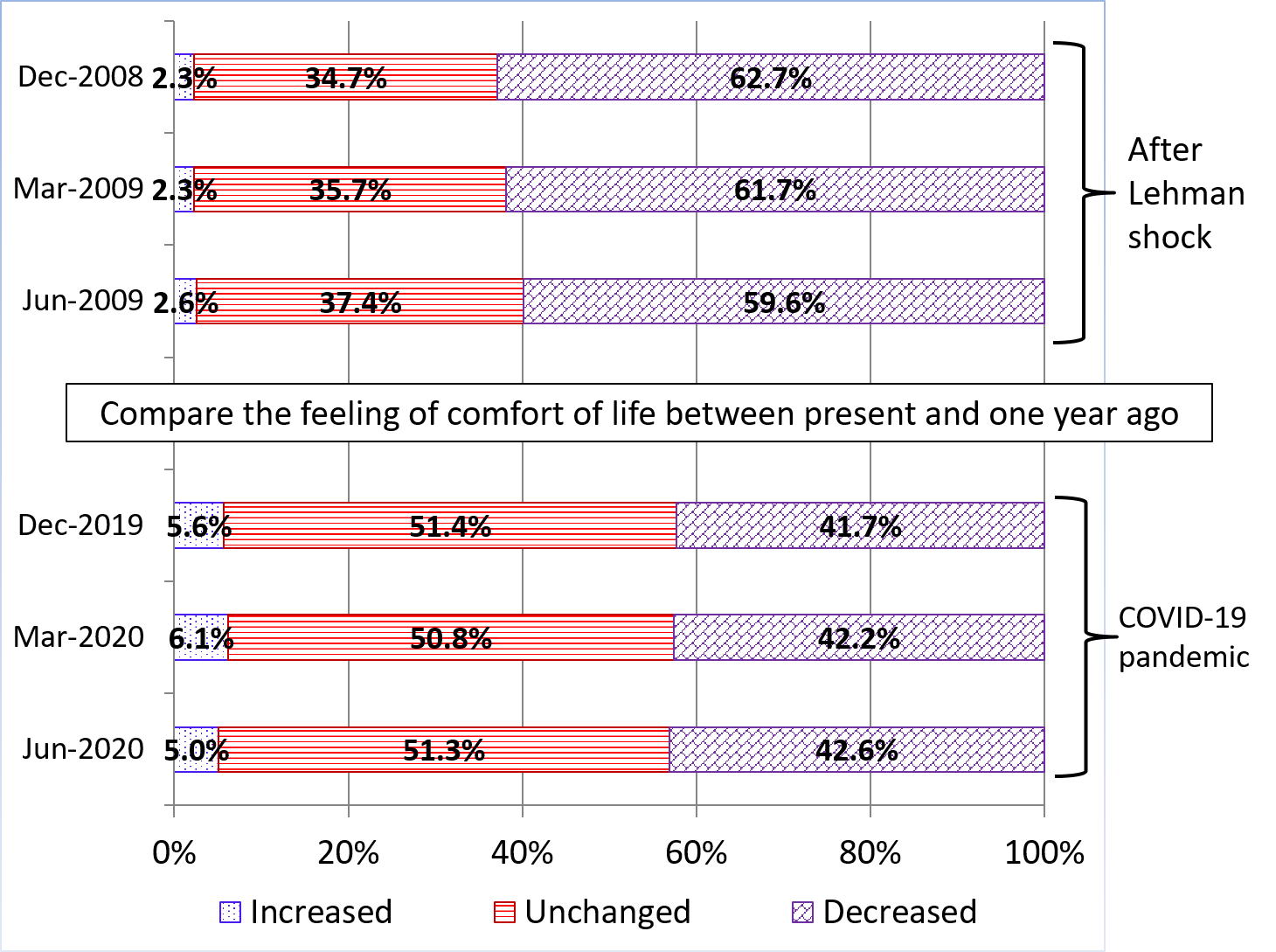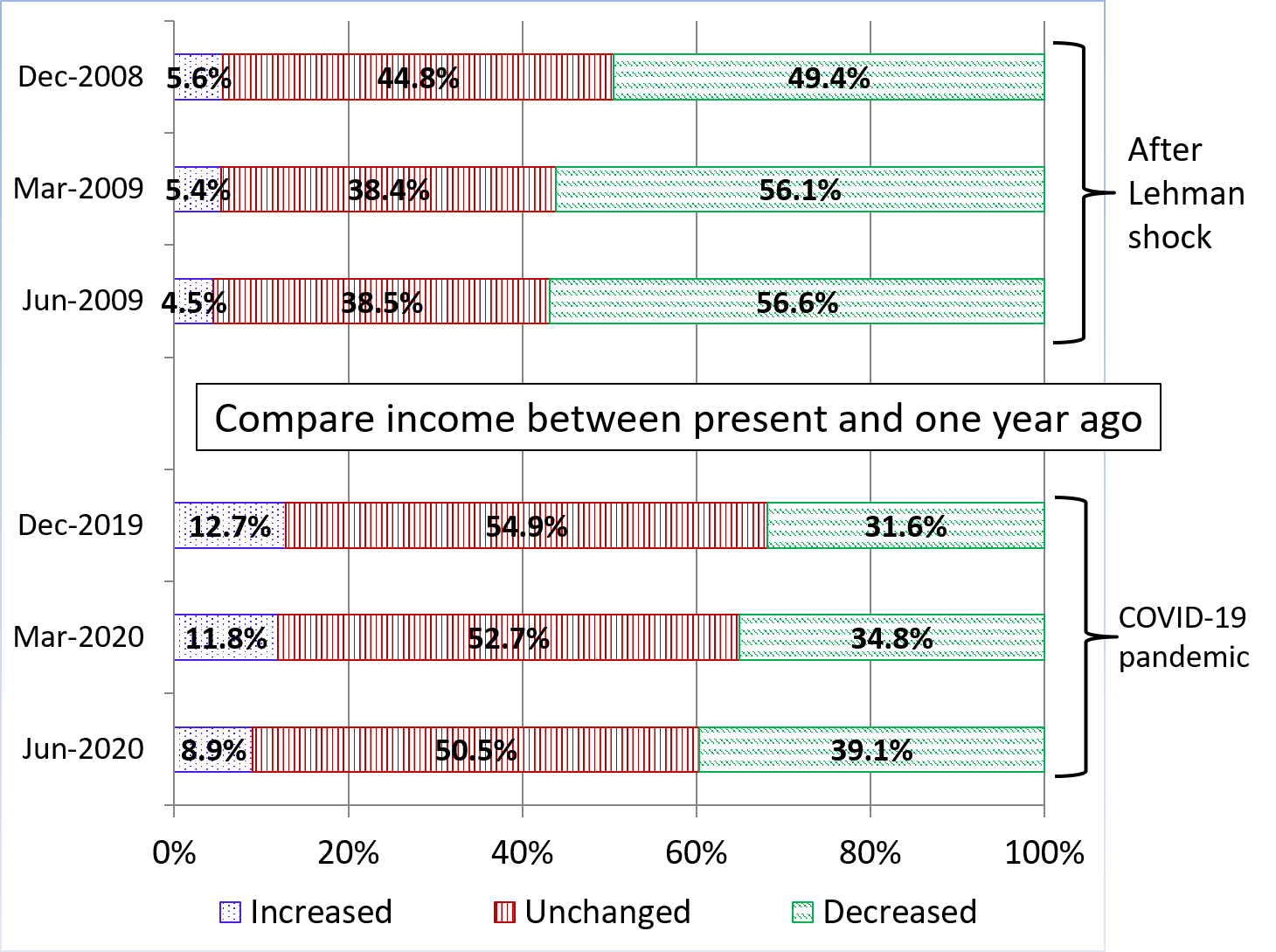Column Finance and the Social Security System 2020.08.06
【Aging, safety net and fiscal crisis in Japan】No.257: People's life consciousness has not deteriorated in the COVID-19 pandemic
In this column series, Yukihiro Matsuyama, Research Director at CIGS introduces the latest information about aging, safety net and fiscal crisis in Japan with data of international comparison.
The Bank of Japan conducts a survey called the “Life Consciousness Questionnaire Survey” every three months for individuals over the age of 20. Figures 1 and 2 compare the current life consciousness of people under the condition of economic stagnation caused by COVID-19 and the life consciousness of people after the Lehman shock in September 2008.
As shown in Figure 1, after the Lehman shock, about 60% of respondents answered that "the feeling of comfort has decreased compared to a year ago." Meanwhile, as of June 2020, only 42.6% of the respondents gave the same answer. This is not a big jump from the 41.7% that gave this answer in December 2019, before the COVID-19 turmoil began; therefore, people’s life consciousness has not significantly deteriorated.
One of the reasons for this is that only 39.1% of the people responded in the June 2020 survey that "income has decreased compared to a year ago" (Figure 2), whereas this figure was over 50% after the Lehman shock. The economy recovered very quickly after the shock, whereas the negative impact of income reduction due to COVID-19 has so far disproportionately affected the tourism, food service, and transportation industries. If the economic stagnation caused by COVID-19 lasts for a long period of time, income reduction will spread to all industries, and there is a risk that people's life consciousness will be badly affected in turn.
Figure 1 Survey results on the feeling of comfort

Source: The Bank of Japan
Figure 2 Survey results on income

Source: The Bank of Japan
